Feed aggregator
Cold Trailing, by F. Gibbs

Cold Trailing is the second book in the “Fire Dog Trilogy.” I must preface this review by noting that I did not read the first book, Fire Branded, but only read the Andy Hart review before diving into this second installment.
Here, we return to the lives of Will, who works at the V-town fire department; his love interest, the mysterious mistress Anne; and Will’s friend, a cougar named Davies. V-town is what the residents call the former Vancouver, British Columbia, a place now mostly inhabited by anthros after some kind of Cataclysm killed off most humans. As noted by Hart in his review, the Cataclysm is never explained in either the first or now, the second installment. We don’t know if there was a war, a horrible pandemic, an environmental upheaval, a giant asteroid collision, or what. We do know that some humans have survived, but not many. In this book, we only meet one briefly. Most of the characters are furries. We don’t know how they got here, either. It seems that furries are a fairly recent arrival on Earth and that Will’s mother was human; his father, apparently, was a Dalmatian. We don’t know why or how Will came to be or why or how there are so many anthros now.
Anyway, our story begins with Will and Davies trying to control a fire on a coal-hauling ship in the harbor. It’s nice to start a tale by leaping into action and introducing two main characters. After tackling this conflagration and rescuing a couple of the crew, Will walks (yes, walks) to his home in the countryside where his Mistress awaits. Anne continues to be mysterious and has some sort of power over Will, including a sexual magnetism he cannot resist. We learn here that Anne is grooming Will to rise to department chief, which he soon does, and possibly more.
Suddenly, there is an earthquake that levels much of the city, especially any skyscrapers left over from the Cataclysm, and the City Hall is nearly destroyed. V-town is also troubled by riots, but the reason behind the riots, as with much of the action in this book, is never explained (they began before the earthquake), although it might be an excuse to introduce to the reader the tensions existing between the police and fire departments.
The world Gibbs has created is odd, to say the least. There are no cars, trucks, telephones, airplanes, or even computers in V-town. The water and sewage systems seem to be operating fine, and there is electrical lighting, which is powered by coal (the ship that caught fire in the opening scene is hauling coal, but Will indicates it is being shipped to the city, which is very strange because British Columbia exports over $3 billion in coal annually and has the largest coal processing plant in North America). Why do we have shipping in this world, but no other forms of transportation? Are they sailing vessels? No sails are mentioned, so I would have to say no. Gasoline also is available, so, again, where are the cars? V-town seems to operate in isolation. We never hear if there are other cities, and when the city suffers an earthquake, no outside help comes to its aid. They seem completely alone. Characters discuss how the entire province of Alberta has been evacuated, but what about other towns in British Columbia or down in whatever is left of the United States?
Food is an oddity in this book. The characters eat a combination of fast food from restaurants mixed with raw meats from the fridge, and they also apparently hunt for food. (Some anthros occupy a social stratum of designated Hunters.) Processed foods must be running out, however, and it is also mentioned that, while there are still canned cokes to be had, most of them have gone flat. Perhaps Gibbs is trying to show his characters as half human/half animal in this way. Perhaps the riots are being caused by food shortages. We’ll never know.
Despite the riots and a major earthquake, the bureaucracy of the city limps along. The mayor’s office seems considerably weakened, with the fire and police departments doing most of the work in keeping V-town from descending into complete anarchy. After the quake, Will is made fire chief, and the town gets a new mayor. There is no election here; the mayor is simply appointed. I also found it odd that everyone seems to be drowning in paperwork. Paper is everywhere, and Will spends much of his time filling it out. Where the paper comes from, no one says. I would assume the paper mills are still working in British Columbia, so if I were in this world, I would invest in a paper company and make a fortune.
We get some sex scenes here and there, and if you like S&M and pup play, you might enjoy them. It isn’t really until around page 170 that we get to what seems to be the crux of the novel: a bizarre conspiracy to turn V-town citizens into half-zombie-like thralls intent on taking over the city. Anne thinks she knows who is behind it, but … well, the real mover and shaker is a surprise, so I won’t spoil it. Let’s just say the book ends with lots of action that would be appropriate for any zombie movie.
I’m sorry to say that I, personally, had a lot of problems with Gibbs’ world building and his writing in general. While it can work to tease the reader and imply things are going on that you don’t fully explain, this has to be done with skill, and there should be a payoff for the reader, eventually. We now have two full novels here in this trilogy, and the reader still doesn’t know what’s going on, how these characters came to be, what the Cataclysm was, and how anthros arrived on the scene. (A particular oddity is that, while most of the anthros come from ordinary creatures of Earth, there are two dragon scalies mentioned. Where the heck did they come from?)
The writing—and editing—of the book is weak. For example, the author uses the word “grin” 127 times. Other times, it seems like Gibbs isn’t paying attention to what he is writing. For example, in one scene we are told that it is a cloudy, gloomy day; next thing we know, a character grins and his teeth glisten in the sun. There are grammar and punctuation errors, errors in expression (“much vaulted” should be “much vaunted”), repeated phrases following one after another (“touch of her lips” and then again “touch of her lips”), sentence fragments, and so on.
Technical details are also a problem. In the first chapter, for example, Will and Davies plunge into the ocean with 100-pound (not kilograms? This is Canada!) packs of fire equipment on their backs. If you ask a SCUBA diver, they will tell you that you would probably drown with anything more than 30 pounds to carry. And what is all this fire gear anyway? When a ship is aflame, fire fighters typically start the battle with equipment aboard the ship (carbon dioxide and steam equipment is used), or they heft hoses from their own ship; they do not carry huge packs on their backs. But if this is how they work post-Cataclysm, then it would be nice to learn how these enormous backpacks are deployed.
The above could be easily corrected with better editing. What bothered me more was the loose, meandering plot. A good story is tightly plotted with events relating logically to one another. The opening fire scene and the earthquake seem to be placed merely for action. Encounters with some characters, such as Will visiting his horse friend in the hospital, also do little to advance the plot; and a mysterious wolf appears early in the book, only to disappear forever. They are not essential to the story. But what is the story? Is it the thrall plot? If so, why must we wade through 170 pages before we get to the thrust of the story? Where were they in the first novel?
If you are not a deep, discerning reader and are simply looking for an action-and-sex-filled furry tale, you may enjoy Cold Trailing. Gibbs is pretty solid writing action scenes, and his sex scenes add to characterization and the story. These things I would say are the strengths of this book. Gibbs is, however, weak in plotting and world building. In my opinion, this tale would have been much improved if he had foregone the entire Cataclysm premise and just written a tale about a furry fireman and his love and work relationships. Either that, or make this about the thralls, which should have been brought up in the first book. All I can say to Gibbs is this: with readers investing so much in the first two books, I really hope we get an explosive payoff in Book 3.
Cold Trailing, by F. GibbsInterview With Kiri - Kindness, Academia, & Health Conditions

Resources, Social Media & Donation Links
Follow Kiri
Follow Kiri's Writing Account
Kiri's Ko-Fi
Join Rhyner’s Telegram Channel
Guest Application Form
BIPOC FURRY EVENTS
Stephanie Interview
The missing person Marquez Duncan was found April 8th, '21.
On March 14th '21, I sat down with Kiri the black academic who's determination drives her to be the best she can be. Her journey through the fandom really shows the magic of it all. How found family, and misfits can make you feel at home and get through tough times. It can be difficult, Kiri tells, to live with the conditions that manifest in painful ways physically and mentally.
Though, as you'll hear time and time again that one act of kindness is all you need sometimes. It can really change someone's perspective. Speaking of change, Kiri discusses how the false pretenses of purity hurt the left. After all, everyone has been guilty of something in the past for one thing or the other. She opens up and talks about how the turning point for her in regards to LGBT+ was the case of Matthew Shepard.
This quirky, and witty dhole really proves the perseverance of her species through her dedication to academia. To keep pushing to understand and learn even if it can be painful sometimes. When it comes to her family and their support for her ambitions, well, you'll just have to hear how touching it is for yourselves!
Thank you for listening!
Cover art done by Vanilla! If you enjoy their art, please consider checking out their Patreon here!
Banned on forgery: Denfur bans furry for encouraging forgery of vaccination cards; more furcons follow suit and invoke ban

As the vaccination drive goes on globally, demand for fake vaccination record cards are on the rise; in one instance being sold online, with prices going from $20 USD a piece to $60 USD per four pieces. A related case of such happened recently when a Twitter user called @fubarrdog commented under one of Colorado-based […]
Furry Down Under 2021: Nearing 2021 in-person event, health advisories and registration flow dished out

With continued stability on the local COVID-19 situation, Australian furcon Furry Down Under (FurDU) is now set for this weekend. The furcon has recently unveiled their registration procedure for this year’s in-person event to be held at the Mantra On-View Surfers’ Paradise hotel. Instead of playing Nokia Snake to queue for tickets, attendees will be […]
COVID-19 and Furries: Motor City Fur Con defers to October, PAWAI offers three choices for ticket refund

Two furcon updates coming up for you: American furcon Motor City Fur Con, originally planned for the start of April, has deferred to October, more specifically, 8 – 10 Oct. The furcon says they have a ‘strong hope’ that an in-person event is viable based on current projections on herd immunity by the fourth quarter […]
S9 Episode 8 – Shake That Tail
Dance! Move! Get going! Roo and Sammy talk with Cosmik and Rhubarb about DJing and music in the fandom.
NOW LISTEN!
SHOW NOTES SPECIAL THANKS- Cosmik and Rhubarb
The following people have decided this month’s Fur What It’s Worth is worth actual cash! THANK YOU!
Get Stickered Tier Supporters

 Nuka goes here
Nuka goes here 


Kit, Jake Fox, Nuka (Picture Pending), Ichi Okami, Taz
Fancy Supporter Tier
![]()
![]()

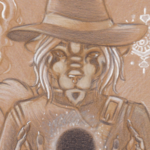

Rifka, the San Francisco Treat and Baldrik and Adilor
Deluxe Supporters Tier
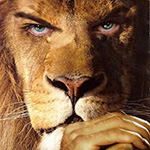



Guardian Lion and Katchshi and Koru Colt (Yes, him), Wolf in a Barrel (picture pending)
Plus Tier Supporters
- Skylos
- Snares
- Simone Parker
- Ausi Kat
- Chaphogriff
- Lygris
- Tomori Boba
- Bubblewhip
- GW
- Moss
McRib Tier Supporters
- August Otter
MUSIC
- Opening Theme: RetroSpecter – Cloud Fields (RetroSpecter Mix). USA: Unpublished, 2018. ©2011-2018 Fur What It’s Worth. Based on Fredrik Miller – Cloud Fields (Century Mix). USA: Bandcamp, 2011. ©2011 Fur What It’s Worth. (Buy a copy here – support your fellow furs!)
- Patreon: The Tudor Consort, Inflammatus, Creative Commons, 2010
- Closing Theme: RetroSpecter – Cloud Fields (RetroSpecter Chill Mix). USA: Unpublished, 2018. ©2011-2018 Fur What It’s Worth. Based on Fredrik Miller – Cloud Fields (Chill Out Mix). USA: Bandcamp, 2011. ©2011 Fur What It’s Worth. (Buy a copy here – support your fellow furs!)
TigerTails Radio Season 13 Episode 10

TigerTails Radio Season 13 Episode 10 Join the Discord Chat: https://discord.gg/SQ5QuRf For a full preview of events and for previous episodes, please visit http://www.tigertailsradio.co.uk. See website for full breakdown of song credits, which is usually updated shortly after the show.
What Is Success?
When I found your ad and checked your website I felt this strange comforting feeling just imagining a kind old bear (no offense if you aren't actually old) giving out advice to those who ask. That's why I'm writing this letter despite not knowing what to ask about. Well, it's more like I have so many things I could ask about that I don't know which! I guess I could ask about how to deal with failure or the lack of success. Sometimes I'll try new things or put all my effort into trying to achieve something and I just can't. I've heard plenty of people say that if you never quit and work hard you can achieve anything. It's hard to believe when the fruits of your labor show little to no results. So how do I keep myself from being disheartened?
* * *
Dear Olwain,
Depending on your definition of "old," I'm 55, so I guess that if I'm not already there, I am getting close. I am currently working on my dissertation for my Ph.D. in Grumpy Old Bear. Soon, I will have to defend my paper in front of a committee of old codgers to get their approval to join their ranks. Wish me luck.
As for your goals and achievements, you are still young and growing as a person. Now is the time for you to explore your options and interests. Failures and dead-ends will be the norm, not the exception. Don't put so much pressure on yourself to succeed right out of the gate. You should do what you're doing right now: try a lot of different things and see what clicks with you.
Meanwhile, remember that everything you "fail" at, or, at least, don't get "measurable success" at is a learning experience. After you have an experience where you fail to achieve something or a project goes awry, take a step back and evaluate what happened, what you did wrong (and also anything you did right but just didn't pay off), and how you might fix it in the future.
The important thing is to find something you love to do, and then, whether or not you "succeed" at it is a matter of your point of view. Say your big dream is to be an artist, but you never end up making much money at it, so you find "regular" work and paint or draw on the side. If you love your art, and you love doing it, then you are still a success. Would you call Van Gogh a failure as an artist? He never sold a single painting when he was alive, but he loved painting. He was a success. If you are an artist but people say your art is bad even though you have tried and tried, but you love doing it, then you are a success because you have found something that makes you happy.
Heck, take this column. I don't make any money at it. It doesn't win any prizes. But I love doing it, so it is a success to me. Another even more profound example for me is my late husband, Jim. Toward the end of his career, he was laid off as a news director and spent his last years with me trying to succeed as an entertainment podcaster. You know what happened? He never made a dime, but he adored what he was doing. He loved recording interviews and editing soundtracks until the day he died. And he was loved. Oh, how he was loved! Now, THAT was a successful life.
Living life is not about achievement or money or recognition or fame. It's about being alive and experiencing life. Hey, that reminds me, that's kind of the message of Disney's recent movie Soul, which is about a piano teacher who wants to make it big but dies before doing so. He learns the very lesson I'm telling you right now: LIVE. This life is for you. Take time to enjoy the sensations, the friendships, the fun of it all, and stop worrying about being a success. If things happen for you and you become rich and famous, then great; if they don't but you had a nice ride, that's just as great.
Step back and ask yourself this: "What am I trying to achieve?" If it is fame or fortune, then reevaluate what you are doing. It isn't about "success" as defined by our capitalistic society. It's about loving life and finding something you love to do.
I hope that helps.
Big Bear Hugs,
Papabear
Ursa Major Awards 2020 winners announced

The winners of the 2020 Ursa Major Awards have been announced on YouTube! Nominations for the best work involving anthropomorphic animals in 2020 were taken this February, and the top five in each of fourteen categories were voted on during March. This year’s winners are… Best Motion Picture: Wolfwalkers (Cartoon Saloon, Mélusine) [Flayrah review]Runners-up (in descending vote order): Sonic the Hedgehog – Soul – Onward – Hayop Ka! Best […]
FWG Monthly Newsletter: April 2021
Welcome back once more for another monthly newsletter! “Wait, don’t these usually go out on the first of the month?” Yes they do, but we waited an extra day so we could share this exciting announcement!
We have had many authors ask for a tool to help advertise being open for commissions. At the same time, we’ve seen many fans of furry literature coming to Guild spaces asking for people to buy them from. So we got to work with the help of some friends in the Furry community to make it happen.
The Furry Writers’ Guild has teamed up with The Dealer’s Den to add the Writers Outlet to the Dealer’s Den Network of chats! The Dealer’s Den has been a staple as the auction website of the furry community for many years so we’re incredibly excited to have their expertise as a partner on this project.
This will be a place to post advertisements for taking custom commissions, openings for markets to write for, selling published works, and for anyone on the lookout for good furry fiction. Please check out the chatroom to see everything it has to offer.
You can find all kinds of submission calls for Furry writing in our Furry Writers’ Market! Currently, these markets are open.
- Selections of Anthropomorphic Literature: Vol 2 – Deadline: May 15th, 2021
- Queer Monsters Anthology – Deadline: May 15th, 2021
- Untethered – Submissions Open June 2021
- Werewolves VS Suburbia – Deadline: June 1st, 2021
- Furs With Benefits – Deadline: June 1st, 2021
- Less Fur-Milliar Spaces – Deadline To Commit: June 1st, 2021
- Werewolves Versus: Suburbia – Deadline: June 1st, 2021
- CRINKLE: A Littles Anthology – Deadline: June 15th, 2021
- The Rebel Diaries: An Anthology -Deadline: June 30th, 2021
- Furward Slash: A Furry Adult Techno-Horror Anthology – Deadline: November 30th, 2021
- Pirating Pups – Deadline: November 30th, 2021
- The Nightmurr Before Christmas – Deadline: October 1st, 2021
- #ohmurr! – Deadline: Ongoing
Make sure to not miss the 2020 Coyotl Awards Presentation! It will be taking place on Saturday, May 8th at 10AM Pacific/1PM Eastern/6PM UTC. Please visit the Coyotl Awards website to get further details. We look forward to seeing who you all voted for.
One last thing: this month is Asian Pacific American Heritage Month. In honor 0f this, we’ll be featuring interviews with several Asian authors this month on our blog. Be sure to check these out to gain some new perspectives on the craft of writing and learn the bit about the heritage and culture of some of our guild’s finest authors.
Keep staying safe and offer yourself kindness when drawing on those creative capabilities during these tough times.
– FWG President Linnea “LiteralGrill” Capps
The Ursa Major Awards for 2020
Welcome in the May! And welcome the 2021 Ursa Major Awards for the best in anthropomorphic media from 2020. While there was so much crazy (and let’s face it, sad) going on that year, somehow creative people managed to bring us some fine “talking animal” entertainment — and we love them for it. So here, as nominated and voted on exclusively by you, the Fans, are the winners for the Best in Anthropomorphics from the year 2020:
Best Costume (Fursuit): Zigc the Khajiit, created by Inerri Creatures
Best Web Site: Furaffinity.net
Best Game: Animal Crossing — New Horizons, created by Nintendo
Best Published Illustration: “Cheers” by Lofi
Best Magazine: Pocari Roo (video series)
Best Comic Strip: Housepets! by Rick Griffin
Best Graphic Story: Beastars (Volumes 4 – 8) by Paru Itagaki
Best Non-Fiction: The Fandom — A Furry Documentary, directed by Ash Kreis and Eric Risher
Best Other Literary Work: Difursity — Stories by Furries of Color, edited by Weasel
Best Short Fiction: What Makes A Witch, by Linnea Capps
Best Novel: The City That Barks and Roars, by J.T. Bird
Best Dramatic Short Work: Zoophobia — Bad Luck Jack, directed by Vivienne Medrano
Best Dramatic Series: Beastars (The English Dub), directed by Shinichi Matsumi
Best Motion Picture: Wolfwalkers, directed by Tomm Moore and Ross Stewart
Needless to say, congratulations to everyone — the winners, and all the other nominees. To find out more about the Ursa Major Awards, or if you’d like to volunteer, visit the official web site. And start thinking about what sort of Furry Stuff you like from 2021! The Ursa Major Awards will return next year!
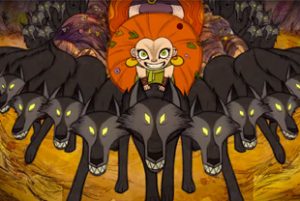
image c. 2021 Cartoon Saloon
Digging up Positivity – Furry charity and good news – April 2021

Welcome to another episode of Digging Up Positivity. April was a busy month, from Easter Bunnys filling up their cars with gas(?) to the fandom doing amazing things for charity, especially Mark Barks. There is plenty of fun news to wolf down, plus our special guest is Rick Griffin, the mastermind behind the very popular […]
Voting open for the 2021 Good Furry Award

Voting is open for the 2021 Good Furry Award! Now in its third year, the award is our appreciation of the fans who show our fandom’s community spirit. Last year’s winner was Ash Coyote, and the 2019 prize went to the late Tony “Dogbomb” Barrett. This year, over thirty furries have been nominated by their peers. Voting will […]
Bearly Furcasting S2E1 - Matt Baume, Grimm Fairy Tale, Media, Five Minute Furs, Taebyn Definitions
MOOBARKFLUFF! Click here to send us a comment or message about the show!
Welcome to the first episode of season #2! Bearly and Taebyn have a great time with this episode. We visit with YouTuber/Author/Podcaster/Furry Matt Baume about his writings and YouTube. Brutus joins us for Five Minute Furs. Taebyn has so many questions. We define a Taebyn Word. Bearly reads a Grimm's Fairy tale that confuses Taebyn. Come join us for some fun and mayhem. Oh, and here is the 'thing' Teabyn wanted in the show notes: \begin{pmatrix}1&2&1\\ 0&-1&1\\ 2&3&3\end{pmatrix}. I think it may be a math thing
Vulpine Taproom – Taproom in Lake Forest Park (lfpvulpine.com)
Thanks to all our listeners and to our staff: Bearly Normal, Rayne Raccoon, Taebyn, Cheetaro, TickTock, and Ziggy the Meme Weasel.
You can send us a message on Telegram at BFFT Chat, or via email at: bearlyfurcasting@gmail.com
Confuzzled part ways with Professor Elemental following public pressure on social media

On 1 May, British furcon Confuzzled has announced that their invited guest musician Professor Elemental will no longer be involved with the convention. This followed much concern on social media over Professor Elemental’s reportedly transphobic position – a 2016 retweet of an article about transgender school locker rooms. Some furs labelled him a ‘TERF’, which […]
Sweets On The Way
Oops! Remember last year, when we mentioned that Netflix was creating a new animated series based on Jeff Lemire’s critically-praised comic Sweet Tooth? Well either the news was incorrect, or else Netflix changed their mind about the format, because they just released a teaser trailer — for the new live action series. “Based on the beloved DC Comic, and Executive Produced by Susan Downey and Robert Downey Jr., Sweet Tooth is a post-apocalyptic fairy tale about a hybrid deer-boy and a wandering loner who embark on an extraordinary adventure.” All episodes will begin streaming on July 4th.
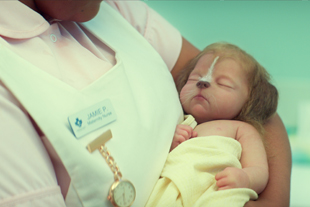
image c. 2021 Netflix
With a Song in His Heart
We’re learning more about Vivo, Sony Pictures Animation’s first musical. For one thing, they’ve released a teaser trailer — and a plot. “An animated musical adventure that follows Vivo, a one-of-kind kinkajou (voiced by Lin-Manuel Miranda), who must find his way from Havana to Miami in order to deliver a song on behalf of his beloved owner and mentor Andres (Juan de Marcos Gonzáles).” Mr. Miranda wrote the original story, and lots of songs for the film as well. It’s directed by Kirk DeMicco (Space Chimps, The Croods) and Brandon Jeffords (Cloudy with a Chance of Meatballs 2). One of the producers is none other than Rich Moore (Zootopia). Well-known voices include Gloria Estefan, Michael Rooker, and Zoe Saldana. Vivo is coming soon to Netflix.
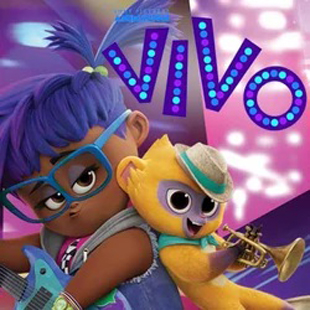
image c. 2021 Sony Pictures Animation
Swordheart, by T. Kingfisher

If you’ve ever wondered what it’s like for a sword to be a person…wait, that’s probably not a thing one would think. Even so, that thought experiment is brought to fruition in SWORDHEART by T. Kingfisher. Set in the year of 1346, the protagonist Halla is introduced locked in her room held captive by her own family. Her great-uncle Silas had awarded her his fortune after his death which angered his family. Of course, the reasonable course of action is to lock the heiress in her room until the inheritance could be secured to stay in the family. As she was about to kill herself (another obviously reasonable thing to do), a flash of blue led to a strange man appearing in her chambers: Sarkis, who promptly told her to put on some clothes.
This fascinating opening leads to a tumble of events, heart-rending in nature but always with an air of subtle hilarity. Halla is a widow without much to bind her to the mortal plane. Those that she cared for seem to be distant or gone and, though it is easy for her to form good relationships, there always seem to be thick walls separating the acquaintances from the close friends. Perhaps her constant questions centering on the mundane ward off possible candidates. Despite her incessant queries, Sarkis is eventually enamored with her for one reason or another and a game of will-they-won’t-they ensues. There seems to be something about Halla that endears her to people once they get to know her.
T. Kingfisher’s fantastic world is sure to keep you turning the pages, eager to see what awaits the vivid characters. The included inner monologues enhance the personalities of the characters and give important windows into what is left unsaid. They provide another route for the underlying comedy to emerge. The only barrier to immersion so necessary in fantasy is that the characters sound normal to modern day readers. There isn’t much time spent on dialects or grammatical structure to differentiate characters. Which is only a small bother as the rest of the world-building is sound and done well. I highly recommend this to those who enjoy infectious characters with a healthy side of comedy.
Swordheart, by T. KingfisherTigerTails Radio Season 13 Episode 09

TigerTails Radio Season 13 Episode 09 Join the Discord Chat: https://discord.gg/SQ5QuRf For a full preview of events and for previous episodes, please visit http://www.tigertailsradio.co.uk. See website for full breakdown of song credits, which is usually updated shortly after the show.
Fuzznet Music sounds off on new growth and features for musicians

For musical furries, Fuzznet is the cat’s meow. It serves musicians like a publisher serves writers, giving them a collective home and ways to be discovered. It was last covered here in October 2020. Finn, the founder, says Fuzznet has been expanding in all directions, so here’s an update with some big and round numbers.
“We reached 600 monthly Listeners, 15k monthly Streams, and 500+ Followers on Spotify alone. We now have over 50 artists under our roof, including people like YaiSor (makes music for Adler The Eagle), TygreCub and Manicknux, and by now have 300+ songs released!
Last month was the first month we were able to reach a huge milestone of paying out profits to artists. We had cooperations with the FurryMusicians page on FA offering spots on our collective to Music Contest winners, signed a huge upcoming partnership with Entail, and supplying them with music for their marketing and branding in the future. We also had a bunch of people reaching out to work with us or request music for their projects.”
Music furs…….. listen up.
We've just partnered with @FuzznetWorld, the largest music collective in the fandom!
What does this Entail?
Stay tuned to find out…… pic.twitter.com/04IElrU6iQ
pic.twitter.com/04IElrU6iQ
— Entail (@entailapps) March 16, 2021
Entail is a new furry art service in development and it sounds like they’ll be able to launch with a chunk of content preloaded. Finn adds:
“We also rebranded from Netlabel to “Music Collective” which is the more accurate term for what we are and do. We’re planning to launch a press release “service” (working out the details) designed both for in-house releases and other furry musicians to interview and make articles about their tunes.
We went from just being a new spot to deliver your music to and get it out, to a real factory of music, as well as true spot for growth as an artist. We’re now able to provide mastering, a Splice license (licensed samples and vocals to use for your music), and a huge collaborative and supportive space for all members.”
Support for member creativity is what furries do best. They may not be as known for music as they are for art and costume, but think again — furry music videos are often cited as the first gateways that new fandom members ever see.
Heya!
We're looking for volunteers in writing (Online Blogs/Articles) for writing about furry musicians releasing new music
We'd like to explore a concept similar to other music blogs with interviews and press releases but specified within the fandom.
DM if interested!
— FUZZNET – Furries & Music! (@FuzznetWorld) March 31, 2021
Hey there!
We'd be opening demo submissions back up for evaluation.
If you're a furry musician looking for your music to be distributed or become part of our collective for future releases, now's your chance!
DM us here or message @TraaaashPanda with a link/demo of recent works. pic.twitter.com/QEBUZNPOTl
— FUZZNET – Furries & Music! (@FuzznetWorld) April 2, 2021
Like the article? These take hard work. For more free furry news, follow on Twitter or support not-for-profit Dogpatch Press on Patreon. Want to get involved? Try these subreddits: r/furrydiscuss for news or r/waginheaven for the best of the community. Or send guest writing here. (Content Policy.)